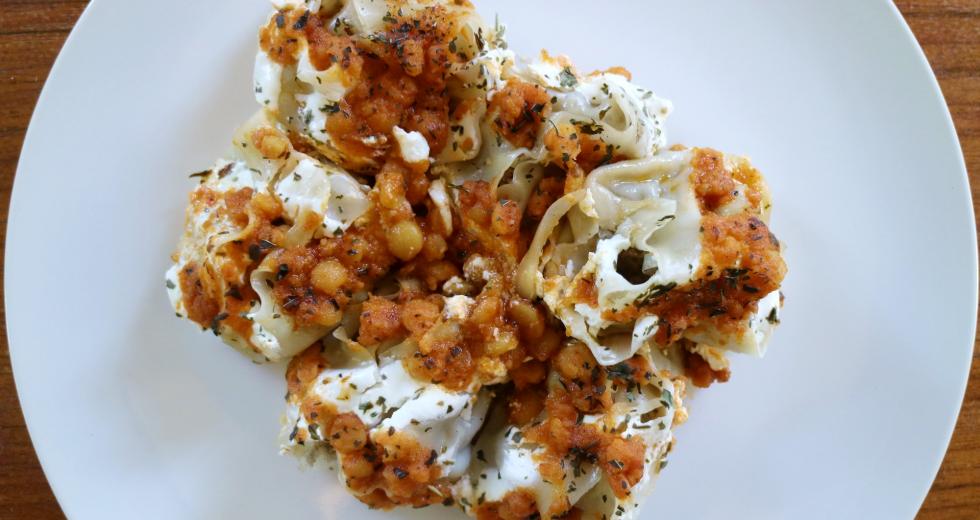“(C)heck for availability, not available always,” the online menu for Aria Afghan Restaurant in North Highlands warns about bolani kachalo, a flatbread stuffed with scallion-flecked mashed potatoes. The same could be said about many of the high-labor, long-simmered items on the menu, typical of this cuisine at the crossroads of South and Central Asia.
Qabili palaw, the national dish of Afghanistan, often sells out before 5 p.m. The name translates to well-accomplished pilaf, meaning only skilled cooks can manage the many steps required to perfume each grain of rice with the full bouquet of its accompaniments — warm spices, whole lamb shanks, carrots and raisins yielding sugar. The dish requires up to three hours of work from start to finish. Pacha, a viscous soup of cow feet and wheat berries that is considered an energizing breakfast in Afghanistan, takes even longer. Aria Afghan is the only Afghan restaurant in the region that serves pacha, not least because it must simmer for over 10 hours.
The strip mall that houses Aria Afghan Restaurant is near
McClellan Park, a former Air Force base.
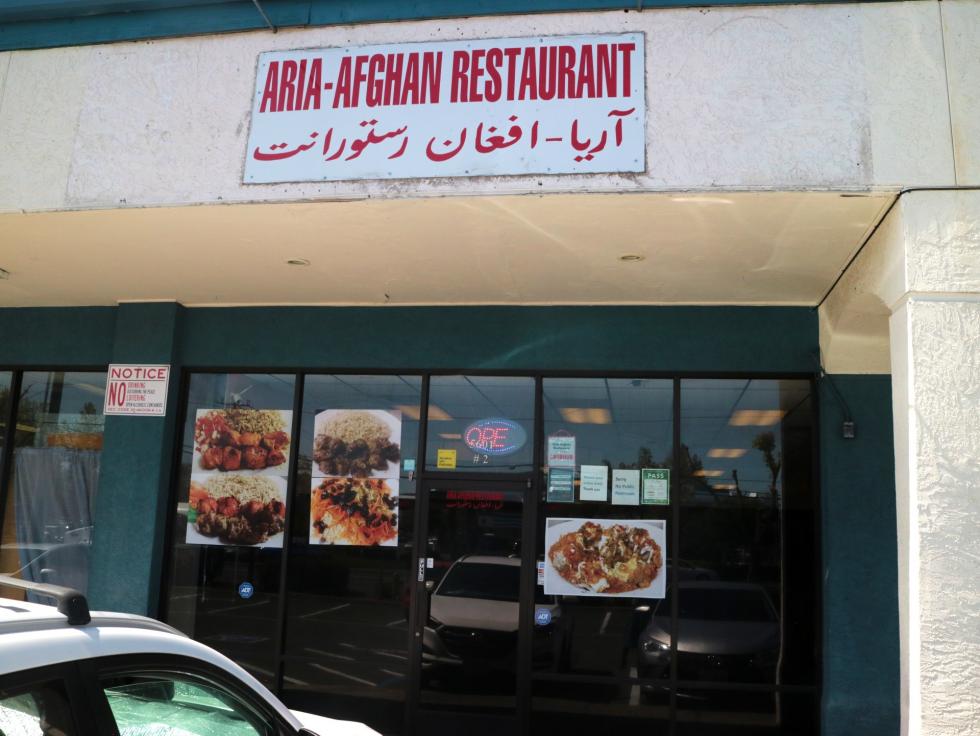
“We want to serve authentic Afghan dishes,” says owner Sayed Haidari, who moved to California from Afghanistan about nine years ago and opened the restaurant in 2017. “I want the food to be real, not bombarded with all the stuff that makes it chemical. … We want the taste of the food itself.”
“(C)heck for availability, not available always,” the online menu
for Aria Afghan Restaurant in North Highlands warns about bolani
kachalo, a flatbread stuffed with scallion-flecked mashed
potatoes.
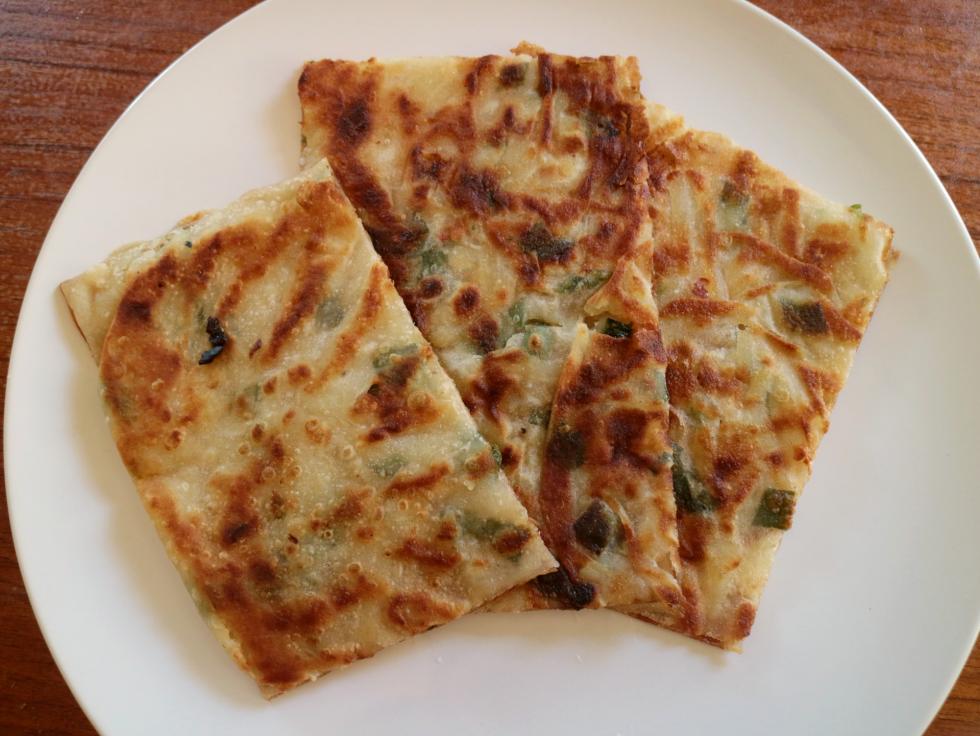
He first settled in the Bay Area, working at restaurants including De Afghanan Cuisine, one of the longest-standing restaurants in Fremont’s Little Kabul neighborhood, always with the goal of opening his own business. This seemed more feasible in the Capital Region, where there are fewer established Afghan restaurants to compete with. There are also fewer Afghan people to serve, but “Many people know (Afghan cuisine),” Haidari says. “Some people try it as something new, and then they love it.” Customers unfamiliar with Afghan cuisine tend to start with kabobs, and Haidari is happy to join them. His favorite item on the menu is chapli kabob, a seasoned ground beef patty pressed thin against the grill like a Shake Shack hamburger.
Aria Afghan Restaurant owner Sayed Haidari says his favorite dish
is chapli kabob (top right), a spiced ground beef patty.
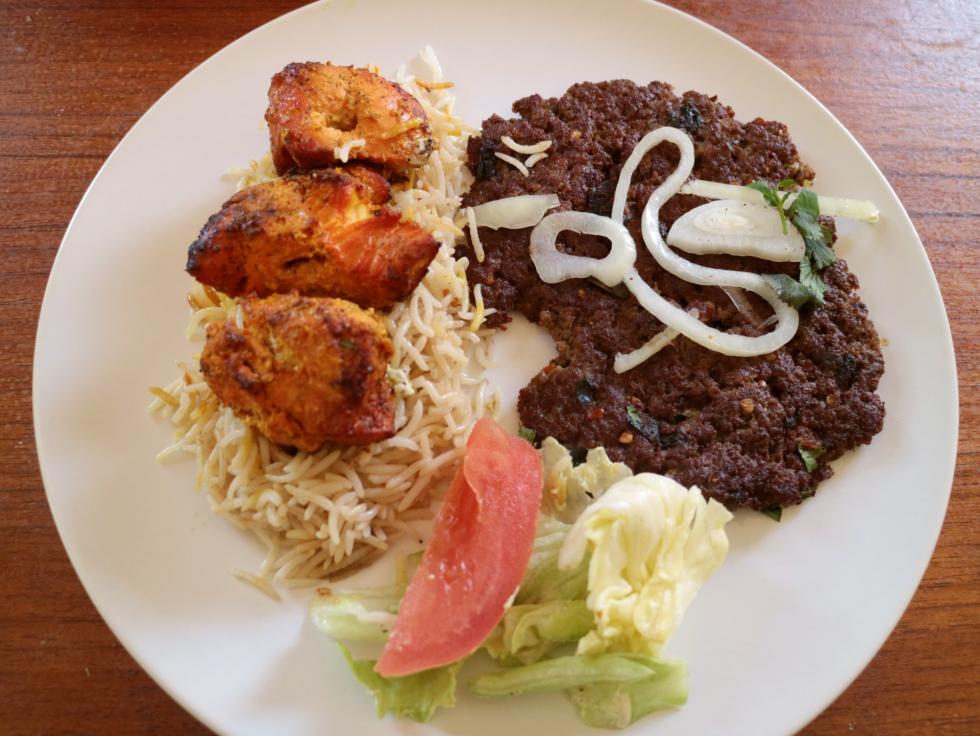
Inside the restaurant, there are more signs of the pandemic inching toward an end. The small dining area is open at 25 percent capacity in keeping with Tier 2 guidelines, though most diners still opt for takeout or delivery (Aria Afghan is on all the main third-party platforms). Sales have climbed back to baseline after dropping 80 percent in March 2020, but they are not where Haidari hoped they would be after nearly four years in business. “I hope everything gets back to normal,” he says. “Then people can come and eat and are not worried about health.”
The one party dining inside during a recent visit didn’t appear to be worried. The three men, one dressed in flowing perahan tunban, the other two in jeans, looked as content as the old man smoking a water pipe in the painting behind them. At the center of their table was a plate of rice strewn with raisins and julienned carrots, the bone of a lamb shank just visible underneath.
They had secured the last serving of qabili palaw for the day, the server confided. Tomorrow, she said, there would be more.
–
Stay up to date on business in the Capital Region: Subscribe to the Comstock’s newsletter today.
Recommended For You
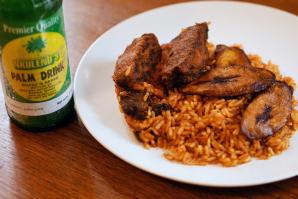
Neighborhood Favorite: Naija Cuisine
Sacramento’s only Nigerian restaurant gets a boost from TikTok
Fufu is a West African staple food made from boiled, pounded
cassava or other starches, and it’s trending on TikTok.
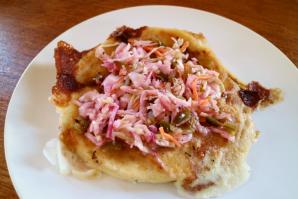
Neighborhood Favorite: Chévere
A Salvadoran restaurant in Arden Arcade attracts a vegan fanbase
One year into the pandemic and two into its existence, Chévere
has managed to hang on with a combination of flexibility and
dedication to its craft.
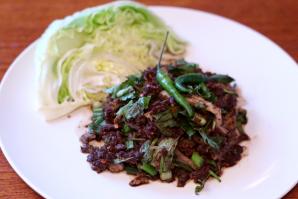
Neighborhood Favorite: South Area Market
Neighborhood Favorite is a new monthly web column that profiles
independent restaurants around the Capital Region to showcase the
diversity and resilience of our local food entrepreneurs. In the
first installment, we visit one of Sacramento’s longest-standing
Lao restaurants.
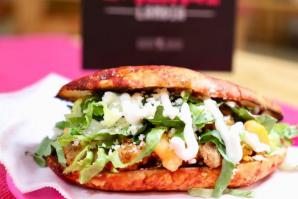
Three New Restaurants Reach Back to Owners’ Roots
Sacramento is one of the most culturally diverse cities in the country, and the metropolitan area’s dining scene is just as varied, due to local chefs and restaurateurs who recognize the connective power of the table.



